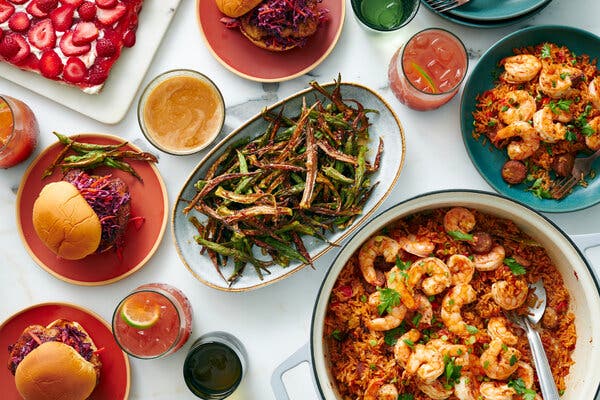Make one, or make them all. Just make them yours.
Listen to this article · 5:12 min Learn more
On Kiva Williams’s Juneteenth table, pops of red — barbecue ribs and watermelon, a symbol of freedom — share the table with hot dogs, burgers, potato salad and baked beans. Sometimes, foods from her past, like fried fish and spaghetti, and coleslaw, “my favorite meal from back home” in Tennessee, also make an appearance.
For Ms. Williams, who runs the Fun Foodie Mama blog, the celebration is a relatively small one, and recent. Ms. Williams, 44, didn’t grow up celebrating Juneteenth — she’d learned about the holiday from her parents, but didn’t celebrate.
But, “as I grew older and had a family of my own, I wanted to be intentional with my kids on celebrating,” she said, adding that she hopes to pass down the celebration, its recipes and cooking traditions to her children. She and her family attend local festivals, spend time learning about the holiday and, of course, gather around a meal.
Red foods are customary for Juneteenth, the annual commemoration of the freeing of the last enslaved Africans in Galveston, Texas, two and a half years after the signing of the Emancipation Proclamation. The scarlet hue symbolizes ingenuity and resilience while in bondage. It’s been three years since Juneteenth became a national holiday, and people are carving out their own traditions.
The daughter of Congolese parents who grew up in Paris, Karen Tshimanga, 37, of Harlem, started celebrating Juneteenth in 2020, after the George Floyd protests.
She honors the holiday in a number of ways: eating, dancing, laughing, volunteering. And when it comes to food, she celebrates with friends at a potluck, the table set with food from different parts of the world.
Thank you for your patience while we verify access.
